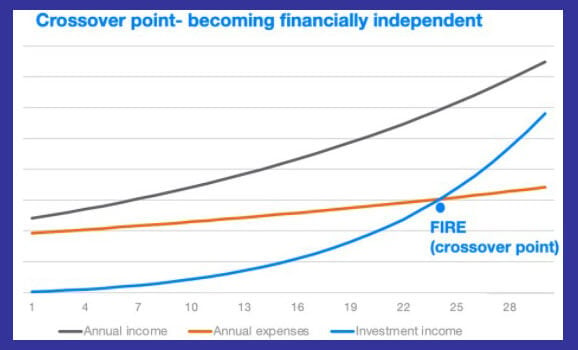The five factors of retirement for Canadians
There are five factors in deciding the timing of retirement—plus a sixth factor that isn’t important even though many think it is.
Advertisement
There are five factors in deciding the timing of retirement—plus a sixth factor that isn’t important even though many think it is.

This month’s Retired Money column reprises a couple of interesting takes on the key factors in deciding one’s timing of embarking on retirement. One is from the Plutus-award winning American author and blogger Fritz Gilbert, and the second is a Canadian take from MyOwnAdvisor’s Mark Seed.
Gilbert started the ball rolling back in April 2022, with a post on his The Retirement Manifesto blog, entitled “The 5 most important factors in your decision to retire.” His Plutus award was for Best Retirement Blog. After more than 30 years working in corporate America, Fritz retired (as planned) in June 2018 at age 55. He’s also the author of a book on retirement: Keys to a Successful Retirement (Rockridge Press, 2020).
Then on my own site, as it often does with permission from various financial bloggers, I re-reran Gilbert’s blog; it was noticed by Seed, who was inspired to riff on the same theme, with a Canadian spin and more remarks from his personal perspective.
Seed considers himself semi-retired (as I do), happy to live off of employer and government pensions as his “fixed income” and mostly dividend income from his investments. Seed’s posts ran in mid-December under the title “5 Important Factors to Consider in Your Decision to Retire.”
So, what was it that so intrigued three different financial bloggers to scrutinize their own reasons for retiring? I’ll count this column as evidence that three of us found it worthy of a write-up. I’ve included the links to the originals above so won’t attempt to cram it all in this space, as they include several charts.
Here are the five factors identified by Gilbert, posed as questions, for deciding when to retire:
You may wish to jot down your answers to these five questions before continuing to read or clicking on the links for the full blogs. One or two words for each should suffice, but it should be a revealing exercise.
Here are my own succinct answers: yes, yes, yes, yes, medium.
By now, you may be wondering about the mysterious sixth factor, which Fritz says “doesn’t really matter at all.” Strangely, he adds, many people consider it to be the most important in their decision.
Spoiler alert: If you like a bit of suspense, read Fritz’s original blog post before proceeding. For those who want the quick-and-dirty reveal, if you’ve not already guessed, it’s your age.
Or, as Fritz wrote: “For once in your life, age has nothing to do with this decision. Unlike with driving, voting and drinking, there are no legal constraints on when you can choose to retire. As long as you can check the boxes on the important factors listed earlier, you can choose to retire regardless of your age.” (Here in the column, the factors are posed as questions, instead of checkboxes.)
Speaking of age… at 70, I’m the oldest of us three bloggers, and Seed is the youngest. All three of us (that is, Gilbert, Seed and myself) are technically still working and probably consider ourselves semi-retired.
I, too, wrote a book about this, called Victory Lap Retirement (Milner, 2019), co-authored with former corporate banker Mike Drak. All three of us, and Drak too, emphasize “financial independence” over classical traditional “full-stop retirement.”
As most of my readers know by now, my contraction for “financial independence” is “Findependence,” which shows up in my financial novel Findependence Day (Trafford Publishing, 2013), as well as my website. The basic philosophy is to work because you enjoy it, not because you need the money. Or, as financial planner Doug Dahmer nicely phrases it in a 2019 Retired Money column of mine, “Work Optional.”
Some younger financial bloggers prefer the term FIRE, which stands for: Financial Independence, Retire Early. Although, increasingly, I see the emphasis on FI, rather than on retiring early.
Some FIRE bloggers talk about “retiring” in their early 30s, which I think is way too young. However, look closely and you’ll see most FIRE bloggers really are referring to quitting the salaried, bossed-around 9-to-5 corporate grind. And instead, they build a self-employed life that may include blogging (paid for by advertising, affiliate links, etc.), book deals, paid public speaking events and/or media appearances and more.
Let me close with some final thoughts on these five “factors.” Apart from age, money has to be the dominant one, which is why Gilbert listed it first. Seed’s blog post goes into considerable depth on money, using charts to examine sequence-of-returns risk and the various “buckets” into which one should divide one’s funds. In essence, there are three buckets: Cash savings for emergencies, income from dividend-paying stocks, and equity income from exchange-traded funds (ETFs).
Don’t forget the second factor: Are you mentally prepared for retirement? It’s not just about having a pile of money. If that were the case, the world wouldn’t be so troubled by the non-retirement of three aging billionaires named Musk, Putin and Trump—if you believe the latter is actually a billionaire, that is.
Seed’s blog post encourages readers to really ask themselves some serious questions. Here are his own answers to his self-posed questions:
For the third factor, Seed uses a chart I liked so much I moved it to the top of the Hub’s republished version of his blog post. It identifies the crossover or FIRE point of becoming financially independent, when investment income exceeds annual living expenses.

The fourth factor illustrates the oft-observed fact that withdrawing money (i.e. decumulation) in retirement is often more challenging than working/accumulating wealth. Both the Canadian and American retirement systems are complex, when you consider the various pension types and tax-efficient savings vehicles, government retirement programs and the complexity of investing in multiple asset classes.
For the last one, factor five, on risk tolerance, Seed highlights Gilbert’s quote:
“The future is unknowable. All things being equal, a decision to retire earlier has more risk than a decision to retire later. Are you aware of, and comfortable with, those risks?”
Judging by the fact I’ve personally not yet completely stopped working, six weeks after my 70th birthday, I’d summarize the risks I’m most keenly aware of: longevity risk, market risk, inflation risk and the risk of being bored if you retire too early.
Every would-be retiree will have a different view of risks and time horizons. If these ideas motivate you to look beyond the simple view that “I’ll retire when I turn XX,” the exercise may have been a valuable one.
Share this article Share on Facebook Share on Twitter Share on Linkedin Share on Reddit Share on Email
Glad to see you prefer working, means we get to continue reading your insights.
I really miss the printed edition of MoneySense (I have based my family financial/retirement plans on some of the articles published over the years)…
Going back to retirement, I will retire in three months (December 2023) and I do not feel comfortable about my decision to retire. I really don’t understand why, because my wife, a dental hygienist (semi-retired) and myself, a public servant (but with a partial pension only – 22 years in the federal public service), have carefully planned for retirement: my wife has no pension but saved retirement funds through her TFSA and RRSP, and I have done the same. Contrary to the advice of professional financial planners, we have saved 900 K and plan to use all of our retirement funds (except my small pension) before the time we reach 80 years of age. Our small home in Montreal has been fully paid for more than 10 years and we have no long-term liabilities. We do not really care, from a financial point of view, what happens to us after 80 years old…
Psychosocial aspects of our retirement: My wife plans to work part-time as long as she can. We are both planning to travel to warmer places (where the Canadian dollar buys more stuff) in the winter for at least three months. For my part, aside from my daily swimming activity at the local YMCA, my plan is to do nothing…
That being said, are both of us delusional or are we well prepared for retirement?
Normand St-Pierre
Hi Normand, Due to the large volume of comments we receive, we regret that we are unable to respond directly to each one. We invite you to email your question to [email protected], where it will be considered for a future response by one of our expert columnists. For personal advice, we suggest consulting with your financial institution or a qualified advisor.